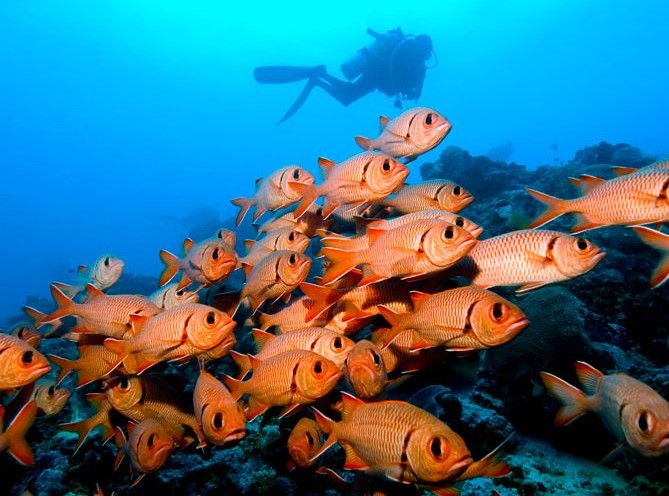


The Ocean Pavilion will showcase more than 80 events during the two weeks of COP 28 (photo: Ocean Pavillon)
Published on 11/21/2023
Agência FAPESP – Research institutions and philanthropic organizations have joined forces to create the Ocean Pavilion, an online platform that aims to raise the visibility of the ocean and showcase why it matters to climate negotiations and all life on the planet.
The Ocean Pavilion is led by Woods Hole Oceanographic Institution (WHOI) and Scripps Institution of Oceanography at the University of California San Diego, and supported by several other oceanographic research institutions from around the world. It was launched at the 27th Conference of the Parties to the United Nations Framework Convention on Climate Change (COP27) and will be part of COP28 in Dubai, United Arab Emirates (UAE), on November 30-December 12. The initiative’s partner organizations include FAPESP and the University of São Paulo (USP).
“FAPESP and USP are also participating in the scientific coalition to establish the International Panel for Ocean Sustainability [IPOS], led by CNRS [France’s largest government research agency] and strongly supported by WHOI. IPOS will assess the current and future state of the ocean,” said Marco Antonio Zago, President of FAPESP.
During the two weeks of COP28, the Ocean Pavilion will host more than 80 events, including scientific meetings and a series of in-depth discussions on such topics as Rising Seas, Climate and the Living Ocean, and Blue Economy & Finance.
“We live on an ocean planet, and the ocean is central to climate resilience and mitigation,” said Peter de Menocal, WHOI President and Director. “In 2023, we experienced some of the greatest ocean and weather extremes ever recorded, underscoring the urgency of science-based decisions to protect people and the ocean ecosystems on which we all rely. Accelerated scientific research and ocean-observing innovation must lead the way to protect the health and future of our planet.”
“Recent ocean observations show that the oceans have absorbed a shocking amount of heat energy that will affect climate and ocean ecosystems for decades to come,” said Margaret Leinen, Vice Chancellor for Marine Sciences at UC San Diego and director of Scripps Oceanography. “We must have the capability to monitor ocean conditions if we are to understand what society and indeed all life on Earth is up against. It is simply not an option anymore for climate negotiators from the international community to think of ocean monitoring and protection as a mere consideration. It is now an imperative. The Ocean Pavilion is designed to make negotiators aware of this and to provide them with the evidence of these climate risks.”
The list of the Ocean Pavilion’s international partners includes global leaders in a wide array of sectors from around the world. It comprises 35 organizations all told, with Bloomberg Philanthropies as Lead Partner; Supporting Partners such as Avatar Alliance Foundation, American Geophysical Union (AGU), Lloyd’s Register Foundation, OceanX (an ocean exploration initiative), and Sasakawa Peace Foundation’s Ocean Policy Research Institute (OPRI); and Collaborating Partners such as Blue Marine Foundation, Carbon to Sea Initiative, CMA CGM Group, CNRS (France), Coral Research & Development Accelerator Platform (CORDAP), Environmental Defense Fund (EDF, USA), Fugro, GEOMAR Helmholtz Center for Ocean Research Kiel (GEOMAR, Germany), Global ONCE, Indian National Center for Ocean Information Services (INCOIS), Minderoo Foundation, National Academies of Sciences, Engineering, Medicine (NASEM, USA), National Institute for Ocean Science (IFREMER, France), National Institute of Oceanography and Fisheries (NIOF, Egypt),
National Oceanographic and Atmospheric Administration (NOAA, USA), National Oceanography Center (NOC, UK), Ocean & Climate Platform, Ocean Frontier Institute, Ocean Visions, Pacific Islands Forum (PIF)/Office of the Pacific Ocean Commissioner (OPOC), Prince Albert II of Monaco Foundation, Propeller Ventures, Portuguese Institute for Sea and Atmosphere (IPMA), Running Tide (USA), and UNESCO’s Intergovernmental Oceanographic Commission (IOC), as well as FAPESP and USP.
For more about the Ocean Pavilion and COP28, visit: oceanpavilion.whoi.edu/.
Source: https://agencia.fapesp.br/50266